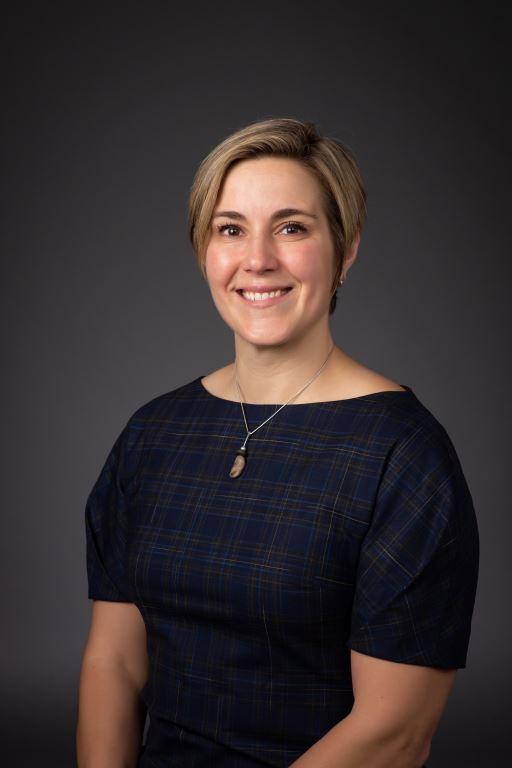We have trained for this. The physical hardship, the long hours, the sick patients. The heartbreak, the isolation, the service. We have trained for this.
There have been times when returning home from a shift felt like returning to a whole other life — or planet. There have been times when we felt worried for our safety, or worried about bringing home an infection to our families. We have trained for this.
There have been times when we have stayed up long hours, have been uncomfortable yet still remained kind, have seen death, have borne witness to suffering, have helped when we could, and have comforted when we could not. There have been other times when the needs of our patients have come before our own comfort, sleep or physical needs. We have trained for this.
Being a clinician during COVID-19 is like showing up to climb a mountain and inexplicably finding that it is twice as high as anticipated. We have trained for this, but the challenge is different than we prepared for. Our training is good, but it is being stretched, and we need to add resources and team members to be successful. At times, the air is too thin, the terrain is too complicated to go alone, and we need to ask for help.
Practicing medicine has a physical component. You move, you reach, you lift, you are on your feet endless hours. You practice medicine in PPE, donning and doffing, breathing always through a mask, and becoming dehydrated from gowns that trap heat. The exhaustion of constant vigilance has heightened the challenge. It is more important than ever to care for our bodies, which are being asked to do so much. Sleep whenever possible, rest when you can. Exercise and stretch so that you stay strong. Eat healthy foods to fuel the very difficult work your body is doing.
When facing a global pandemic, and facing it up close as an EM clinician, fear is a normal response. There is a lot to be afraid of out there. Fear can serve as a natural guide for what to pay attention to, when to take care, and where to apply your considerable intellect and skill. Sometimes, when we react from fear instead of consideration, we do not make the best decisions. How do we short circuit our fear responses and allow for time to relax, consider and plan? When feeling anxious, overwhelmed or afraid, a few moments of breathing, meditation or mindfulness can reduce cortisol and adrenalin and allow your mind to re-engage with the topic rationally.
One way that many of us manage stress is through our connections with friends and family, and that can be difficult to navigate when physical distancing is so important. Schedule time to connect with family and friends over the phone, through video conferencing or by writing a letter or card. Our community is more important now than ever.
With children home from school and older adults needing more assistance, family obligations can be overwhelming for working adults. To make matters worse, our usual helpers (nannies and childcare workers, cleaning services and assistants) may not be able to come into our homes. Remember to communicate with your team, whether that includes your spouse, older children or friends who are helping.
Everyone who works in emergency medicine has borne witness to suffering, fear and pain. Now, more than ever, our EM and ICU clinicians are asked to care for and support patients who are very ill, dying and isolated. The sheer number of sick and dying patients can be overwhelming, and the racial and economic disparities among the sick can be disheartening. Making sense of all this can be difficult and may shake our spiritual beliefs about how the world works. We grieve for our patients, for our colleagues, and for the life we were living just a few months ago.
Now more than ever, it is important to support and rely on each other. Reach out to support a friend or a coworker. Be willing to reach out for your own support as well. If you have a therapist, this is a great time to touch base. When we are working hard, physically, mentally and emotionally, it can be difficult to take an hour or two for ourselves, but this is the most important time to do so.
Please explore what your hospital and health system or employer has to offer for you during this time. At Envision Physician Services, we are offering daily support meetings with meditation, crisis peer support training, and follow-up debriefs with trauma therapy specialists for our clinicians in the hardest hit areas. These services as well as many other resources, are available at www.envisionhealth.net/coronovirus/wellness. ACEP also has a solid set of wellness and support resources available to members.
Please, if this is all too much, if you are feeling hopeless or having thoughts of suicide, take a deep breath, and stay with us.
National Suicide Hotline: Call 1-800-273-8255.
Stay safe, stay well, and thank you for all you do.
Stefanie Simmons, MD, FACEP
Vice President, Patient and Clinician Engagement
Envision Physician Services
